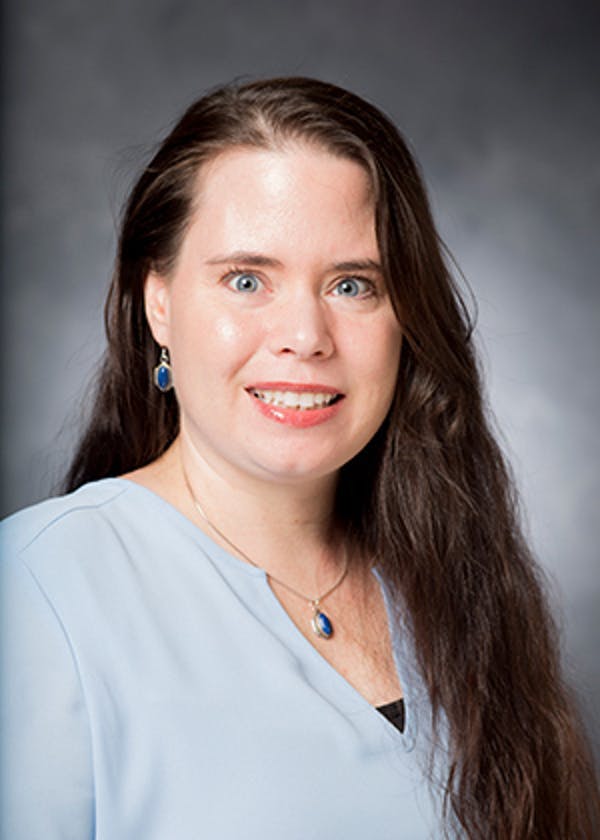Lecturer uses grant to support research on cognitive learning
Amanda Ferster, a lecturer in the Mary Frances Early College of Education’s department of educational psychology, received a Learning Technologies Grant from the University of Georgia’s Center for Teaching and Learning to support her research on cognitive learning. The grant began on Sept. 15 and will last through June 30, 2021.
Ferster developed a game, Statistical Scatter, which includes asking students in her quantitative methods classes to collaborate in teams to answer statistical task card questions. Through the game, she can integrate cognitive learning theory into the content. With support from the grant, “The Augmented Reality Statistical Scatter,” Ferster and her team will convert the hard copy of Statistical Scatter into an augmented reality mobile experience.

“The team will first storyboard the task cards,” she said. “Along the way, students may activate cognitive supports by hovering over targets with their mobile device. Varied media sources may be linked to a target—video, model and audio file—this technology has really opened the possibilities.”
According to Ferster, the transition will enhance dissemination, allowing students outside of her courses to participate. Furthermore, the technology will decrease administration and response burden—instructors will spend less time explaining the rules and monitoring each step and students will enjoy immediate feedback and automatic advancement.
“While these alone are positive attributes, the team is also excited about the research potential,” she said. “My colleagues, Michael Barger and Emily Rosenzweig, who are both assistant professors in the department of educational psychology, will assist in evaluating the impact the conversion has on student engagement and motivation.”
This semester, Ferster’s team will focus on storyboarding and developing targets for the cognitive supports. In spring, the team will concentrate on transferring content into Augmented Reality Interactive Storytelling (ARIS), piloting the program with students and evaluating the impact of the augmented game.
